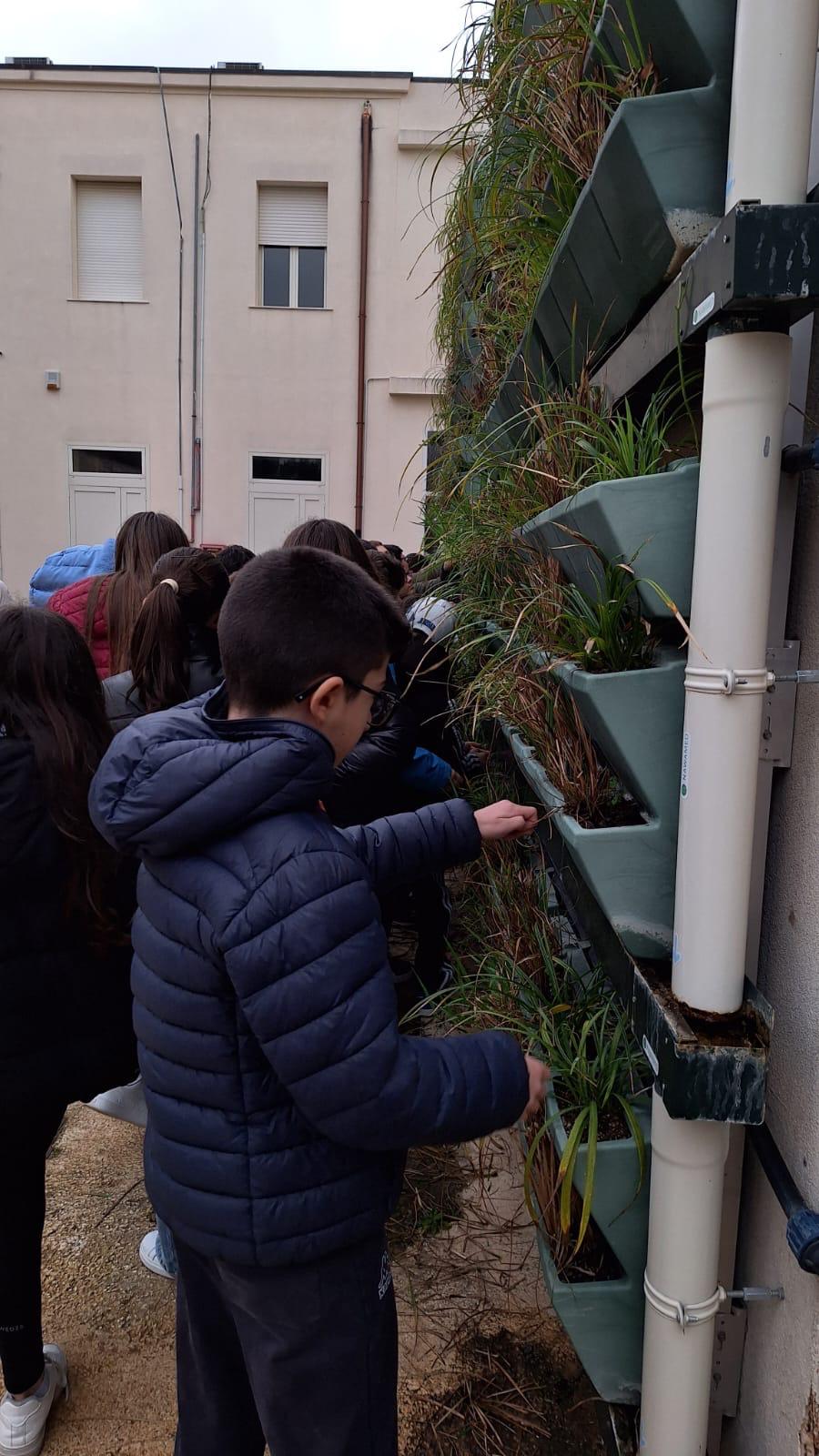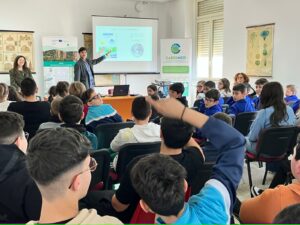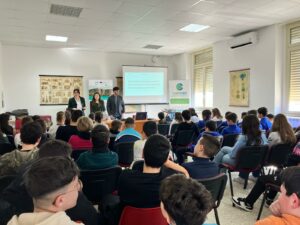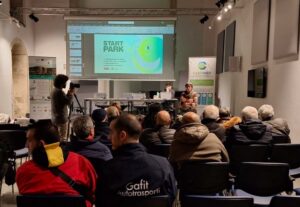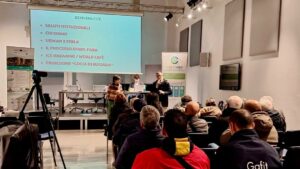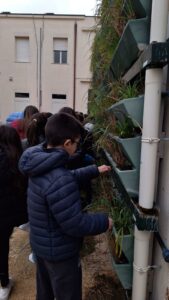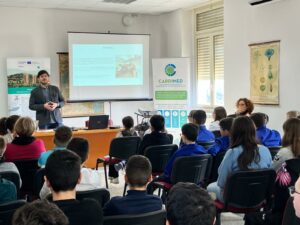In Ferla (Sicily), the co-design Startpark process foreseen by the URWAN project has been launched. Great participation and involvement of more than 100 people, including students from the I.C.S. ‘Valle dell’Anapo’ school and citizens.
On 14 February, a series of meetings within the URWAN project and as part of the Start Park process have been launched in the Municipality of Ferla. The goal is to co-create a city that is increasingly resilient to climate change, putting nature and its mechanisms back at the heart of urban and climate planning through a bottom-up co-design process. Nature-based Solutions (NbS) represent an important opportunity to integrate adaptation concepts into the urban regeneration process while managing in the best possible way one of the most precious resources, water, in the best possible way, especially in contexts of severe water scarcity or stress, such as in Sicily.
Three meetings marked the start of this journey, which will culminate in a co-design workshop on 22 March, during the co-design workshop, directly supported by the @co-design Toscana team; this will be followed by other moments of awareness-raising, creation and involvement, as well as a final moment of promotion of the results achieved together with the citizens. The beginning of this journey in stages saw the active participation of the students of I.C.S. ‘Valle dell’Anapo’, whose curiosity was aroused by watching the short film ‘Gocce di Rugiada‘ (Drops of dew) and by visiting the Green Wall (Wall2Water) hosted by their own school.
This was followed by direct involvement and discussion with the community, an integral part of the co-design of the urban area to be regenerated thanks to the union of ideas, creativity and rationality of the different sections of the population: a perfect recipe to promote the design of a multi-faceted and multi-objective strategy, capable of responding to different social and environmental challenges, and a true example of active citizenship.
‘Everyone sees the violence of the river in flood, no one sees the violence of the banks that constrain it’ – Barbara Sarnari of SVI.MED. recalled this aphorism by Bertolt Brecht several times during these moments. The alliance with nature, rather than its ‘domestication’, is a great opportunity for communities wishing to regenerate their spaces to adapt to the changes that are now constantly occurring at a climatic level, and to educate new generations in a new approach to change and nature. Getting to know the most innovative solutions is not easy for the general public, but processes such as Startpark’s – which combines more technical elements in a gamification process – allow everyone to contribute to a common vision of these public spaces, making them not only multifunctional for socio-recreational purposes, but also ecosystemic.
The parallel activity of the CARDIMED project (Horizon Europe), which simultaneously monitors the environmental performance of the green wall and evaluates dissemination and management tools, was also presented at these meetings, in order to promote it at European level as a good practice in the field of NbS. The Green Wall is in fact one of the nine demos of this important international research project.
The launch events concluded on 25 February with a new meeting with the students of the school of Ferla, in which theoretical and practical aspects culminated in an experiment carried out in the classrooms: a great opportunity to play and learn in a fun way how a water filtration system works, broadly simulating what happens in nature and thus in their Green Wall.
- Startpark co-design process in Ferla (Sicily)
- Startpark co-design process in Ferla (Sicily)
- Startpark co-design process in the auditorium of Ferla (Sicily)
- URWAN presentation in the Auditorium of Ferla (Sicily)
- Nature-based-Solution in Ferla (Sicily)
- Startpark co-design process in Ferla (Sicily)
“Witnessing and participating in the organisation of these events has been a great opportunity for personal and human growth for me, and it is always gratifying to see citizens ready to act in front of today’s challenges, from which to seize opportunities for improvement and a reversal of the dominant development model. I believe that stimulating bottom-up participatory processes is one of the keys to tackling systemic problems and then seeing the questioning but also curious eyes of young people always gives an impetus to our wounded capacity to feel hope and to act moved by it. We must learn to navigate and care for this light, to protect it: it is an exercise in collective responsibility and global citizenship!” – said Miriam Cannella, IVY volunteer.
These events were valuable moments of encounter and exchange: the shared reflections showed that nature can help to break down walls, both physical and metaphorical, giving continuity to space and people, focusing on their visions and needs without overpowering nature, or rather by allying with it. There was also a clear willingness on the part of the population to join forces, enthusiasm and energy from many sides to initiate a true process of collective design, capable of involving the entire community in an innovative, multidirectional exchange, where the new and the traditional mix in perfect harmony to look to the future in a conscious and creative way.
The next appointments will be in the run-up to World Water Day on 21 March with the students of the school and on 22 March with all citizens to plan together the urban spaces identified and to be redesigned during the co-design workshop.

